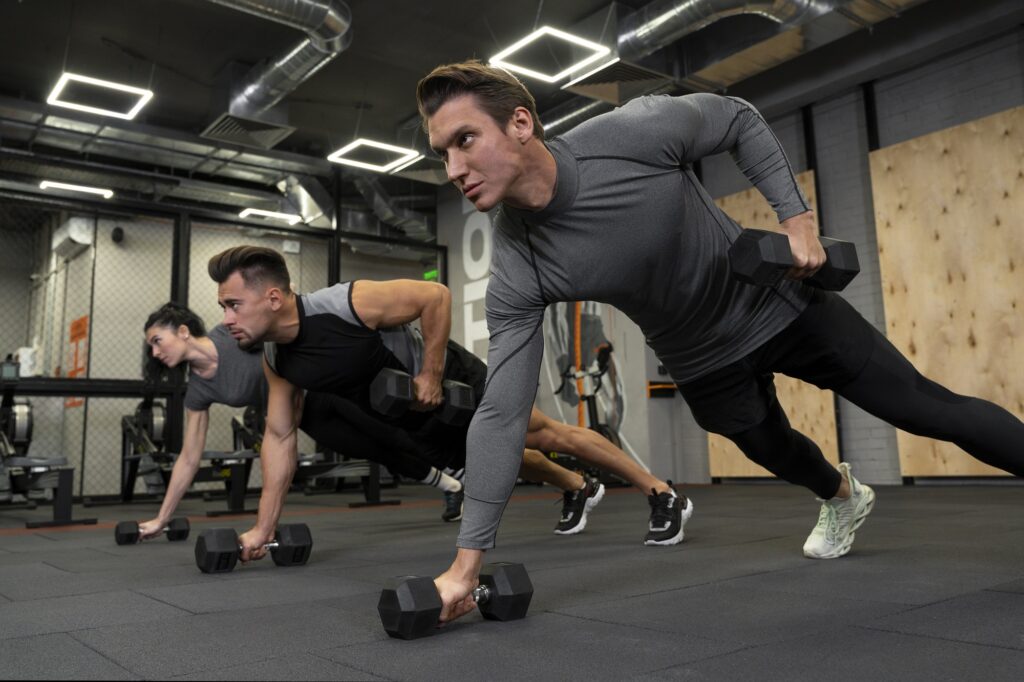The Benefits of Functional Fitness Training

Functional fitness training has become increasingly popular in recent years, and for good reason. This form of exercise focuses on movements that mimic the natural motions of daily life, such as bending, lifting, squatting, and twisting. By enhancing strength, coordination, and flexibility in ways that matter most, functional fitness offers a range of benefits for people of all ages and fitness levels. Whether you’re a seasoned athlete or just getting started, incorporating functional training into your routine can significantly improve your overall health and quality of life. What is Functional Fitness Training? Functional fitness training involves exercises that help your body perform everyday activities with ease. The goal is not just to get stronger or build muscle, but to improve your overall body transformation and functional capacity. This means working on movements that improve balance, coordination, mobility, and endurance — all key components that make everyday tasks feel easier. The exercises often combine multiple muscle groups and focus on training the body as a whole rather than isolating specific muscles. Some common functional movements include squats, lunges, deadlifts, push-ups, and rotational exercises. These movements are designed to work on the body’s core, stability, and flexibility, making them especially beneficial for individuals who want to increase their performance in everyday life and sports. 1. Improved Strength and Endurance Functional fitness is an excellent way to build strength because it targets both the larger muscle groups and the smaller stabilizing muscles. The compound movements involved in functional training require the body to work as a unit, improving overall strength and endurance. For instance, exercises like kettlebell swings, squats, and burpees engage multiple muscle groups at once, increasing your cardiovascular endurance while building strength. This holistic approach to training and body transformation means that your muscles learn to work together more efficiently, enhancing your endurance for daily activities. Whether you’re lifting groceries, carrying children, or doing home repairs, functional training ensures that you have the strength and stamina to handle whatever life throws at you. 2. Better Balance and Coordination Functional fitness training helps to improve balance and coordination by focusing on movements that engage the core and require stabilization. Core strength is vital for maintaining balance in everyday life, as it supports proper posture and alignment. Exercises such as single-leg squats, planks, and medicine ball throws require coordination between various body parts. By improving these aspects, functional training helps to reduce the risk of falls, especially as you age. This is crucial for maintaining independence and preventing injuries that can occur due to a lack of balance or coordination. 3. Enhanced Flexibility and Mobility Flexibility and mobility are integral components of functional fitness. Many of the exercises, such as lunges and hip stretches, encourage joint mobility and flexibility, which are necessary for maintaining an active and pain-free lifestyle. Regular functional training improves your range of motion, making it easier to perform activities like bending over to pick up an object or reaching for something on a high shelf. Better flexibility also helps reduce muscle stiffness and tension, which can be a source of discomfort or injury, particularly as we get older. 4. Reduced Risk of Injury One of the key benefits of functional fitness is its ability to reduce the risk of injury. By training the body to move efficiently and strengthening the muscles that support the joints, functional fitness helps improve overall body mechanics. This makes the body more resilient to stress and less prone to injuries. For example, strengthening the muscles around your knees, hips, and ankles through functional exercises can help prevent injuries related to running, jumping, and sudden movements. Additionally, functional training helps to improve posture and alignment, which can alleviate strain on the back and shoulders. Proper posture during functional exercises can translate to better posture in everyday activities, reducing the likelihood of overuse injuries caused by poor body mechanics. 5. Improved Athletic Performance Whether you’re an avid runner, a swimmer, or a cyclist, functional fitness can help improve your athletic performance by focusing on the specific movements required in your sport. For example, a runner would benefit from exercises that improve hip flexibility, ankle strength, and core stability, while a swimmer might focus on upper body mobility and shoulder strength. By improving your body’s range of motion, flexibility, strength, and endurance, functional fitness training supports better performance across a variety of sports. This type of training can enhance your stamina, speed, and power, allowing you to push your limits and achieve your athletic goals. 6. Better Posture and Alignment Functional fitness training is designed to improve your overall body awareness, which has a direct impact on posture and alignment. Many functional exercises strengthen the muscles that support the spine and promote proper posture, such as the core, lower back, and shoulder muscles. When you improve your posture, it can help relieve discomfort caused by slumping or poor alignment. This is particularly important for individuals who sit at desks for extended periods or spend long hours in front of a screen. By practicing functional movements that emphasize alignment and body control, you can correct imbalances that contribute to poor posture and chronic pain. 7. Increased Mobility in Older Adults As we age, we naturally lose muscle mass and joint flexibility, which can limit our ability to perform everyday tasks. Functional fitness training helps older adults maintain their mobility and independence by focusing on exercises that mimic daily movements, such as getting in and out of a chair, climbing stairs, or carrying groceries. By regularly engaging in functional training, older adults can experience improved balance, flexibility, and strength, which all contribute to a higher quality of life. Additionally, functional exercises help reduce the risk of falls, a common concern for seniors, by improving coordination and stability. 8. Mental and Emotional Benefits Functional fitness training isn’t just about physical strength — it also offers a range of mental and emotional benefits. Exercise, in general, has been shown to reduce stress, anxiety, and depression. When you engage in functional


